- Learning time
- 20 minutes
- First play time
- 80 minutes
Mü
Designed by: Doris Matthäus,Frank Nestel
Mü is a trick-taking game where temporary alliances are made in each round as players seek to score points individually, and as a team by stopping their opponents achieving their goal. Although it can be played with 4-6, it’s best with five players, who will form a Chief team of two against a Vice team of three each round.
The deck of 60 cards is made up of five suits numbered from zero to 9, with two ‘1’s and two ‘7’s in each suit. Pips on the cards count for points taken when a trick is won – most cards have one pip, but the ‘6’s and ‘7’s have two pips, while the zeros and ‘9’s have none. During play, standard trick-taking rules apply: one player will lead, and if others can follow suit they must do so. If they can’t, they can either dump a card or play a trump, which will take the trick (assuming of course nobody plays a higher trump).
So far so standard (apart from the unusual deck) – but there are two elements that help Mu stand out from the crowd of regular trick-takers: the bidding phase that precedes each round, and the fact that the trump suit can be a colour, a number, two colours, two numbers, a colour and a number, or no trump at all – phew!
After the full deck is shuffled and dealt (12 cards each in a five player game) there is the all-important bidding phase to see who will become Chief and Vice for the round. Players bid by playing cards in turn from their hand to the table; the bidding may make several rounds, and when no-one wants to up the bid further, the player with most cards in front of them is declared Chief. The number of cards the Chief played determines the number of points their team (more on teams in a sec) need to collect to earn a bonus – if they fail the Vice team will score bonus points instead.
The player who bid the second most cards will be Vice – the leader of the opposition. The Vice now chooses the minor trump – either a suit or a number – restricted by the cards they played for their bid. Next the Chief chooses the major trump, with the same restriction. Together these two trumps create a single trump suit. So if Vice chose black and Chief chose red, the trump suit would run from 0 black all the way up to 9 red. Trumps get a little more complex if numbers are chosen – if the Vice chose a number as trump, and Chief a colour, then the number in that colour becomes the most powerful card in the trump suit. It makes logical sense, but does take a while to wrap your brain around. Finally the chief chooses one other player (not the Vice) to be on their team, and play can begin.
There are twelve tricks in all, and all cards from the hand as well as those played to the table during the bidding phase will be played. All five players want to win tricks for the individual points, but the Chief and their partner need to, between them, win enough points to make the Chief’s bid. And the Vice team need to stop them.
After all cards are played, everyone tallies their points. If the Chief’s team hit their target, they’ll both get a bonus. But if they failed, the Chief will lose points (but their partner won’t) – and the Vice team will all get a bonus instead. You really want to be the chief (or the chief’s partner) at some point because hitting that target can catapult you miles into the lead. But the risk, of course, is missing it… First player to hit 500 points wins.
Joe says
The bidding phase is the core of what makes Mu fascinating to me. The sweet spot seems to be Chief's partner, since you get all the bonus points but take none of the risk - but how to get there? If someone emerges as likely chief, you can play some cards to show you'd be a useful partner - but don't get caught becoming Vice. Or you can make an early bid for chief yourself, and hope to be outbid - but the moment that happens you usually become Vice, so you're flipping from one side to the other, and have to keep good options for your choice of trump open for both. More experienced players (I think - I'm not one!) favour being Chief, because you get more control over the trump suit - but then you're really putting yourself on the line. I really enjoy team games, and the temporary alliances and two against three set-up here makes Mu particularly interesting. But it's quite a task to find five people who are willing to play regularly enough to get to the point of knowing what makes a good bid, or a good play. There's an app version I've played a lot, which is a great way to get your fix and consolidate a small amount of strategy ready for the real life game, if you're interested.
The guru's verdict
-
Take That!
Take That!
Nothing arbitrary.
-
Fidget Factor!
Fidget Factor!
Low. The heart of the game is the simple play/follow mechanic of trick-taking games like whist.
-
Brain Burn!
Brain Burn!
The complex element here is judging your hand at the start, and deciding what role it's best suited for. If someone else is clearly bidding to be chief, you might decide you want to partner up, and so bid cards to make that clear to them.
-
Again Again!
Again Again!
There's a good deal of tactical intrigue here.

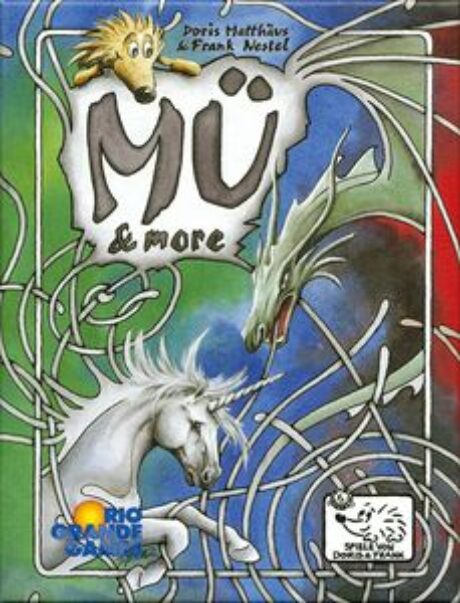

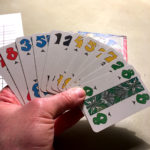
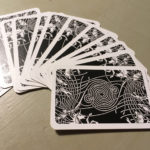

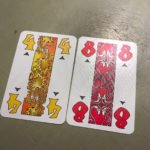


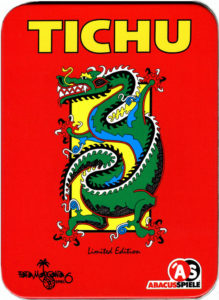
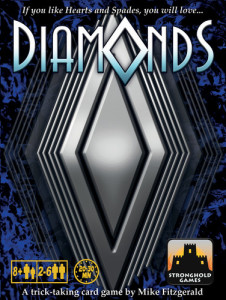

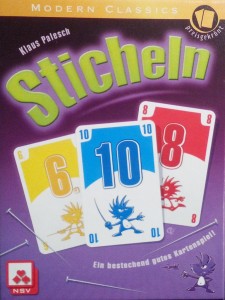
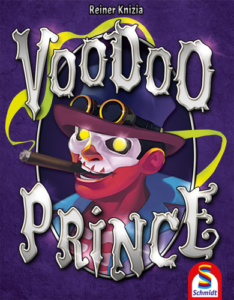
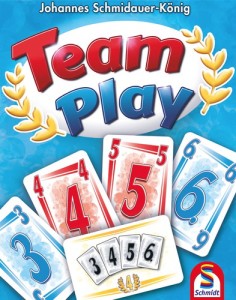
Sam says
An intriguing game for a number of reasons - the points system means being chief is very alluring; as the vice or opposition player you're largely playing a spoiling game to stop the chief and partner hitting their target. The bidding at the start of each round is devilish, because with lots of a single colour or number you definitely want to choose trump, but the more you bid not only are you giving away more information from your hand, you're also giving yourself a higher target to hit. Then factor in trumps can be numbers instead of suits, the fact there are two trumps, and how the bidding affects the points system on top of that - it's a long way from whist at this point, and my couple of plays of Mü have been more shrouded in opacity than tactical ingenuity. But on that limited interaction with the game, I can see its cleverness and fans of classic card games might get a big kick out of this - once you get your head around the rules!